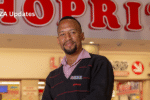Mastering Social Media for Job Searching Success in South Africa. In the modern job market, your online presence can be just as impactful as your CV. As South African recruiters increasingly turn to digital platforms to screen candidates, mastering social media has become a vital tool in the journey toward employment.
Today, platforms like LinkedIn, Twitter, Facebook, and even Instagram form part of your professional identity. Employers are no longer relying solely on your qualifications and interview performance. Instead, they are looking deeper into how you represent yourself online. This shift presents both a challenge and an opportunity for South African job seekers.
Mastering Social Media for Job Searching Success in South Africa
Social media screening is fast becoming a standard part of the recruitment process in South Africa. Reputable verification services, such as MIE (Managed Integrity Evaluation), now offer online behaviour analysis as part of pre-employment checks.
what does this actually mean for a job applicant?
Social media screening involves a thorough examination of a candidate’s public digital footprint. Employers assess content such as public posts, photos, comments, shares, and interactions to evaluate a person’s values, communication style, and potential alignment with company culture. Importantly, this process is conducted in line with POPIA (Protection of Personal Information Act), ensuring that privacy rights are upheld while gathering relevant insights.
In short, your social media activity is now an informal yet powerful professional reference.
What Employers Are Looking For in Your Online Presence
Many people wrongly assume that social media screening is only about catching negative behaviour. In reality, employers use it to spot positive traits and soft skills that don’t always shine through in a traditional interview.
Here’s what South African recruiters often look for:
- Cultural Fit: Are your interests and values aligned with the company’s ethos?
- Professional Interests: Are you engaged in your field, sharing or commenting on industry news?
- Digital Etiquette: Do you interact respectfully with others online?
- Creativity and Communication Skills: Is your content thoughtful and well-presented?
Equally, employers will be cautious about:
- Inappropriate content (nudity, hate speech, bullying)
- Evidence of substance abuse
- Discriminatory comments
- Strong political or controversial views that may create workplace tension
Why Your Digital Footprint Matters
In South Africa, with its diverse workforce and competitive job market, your digital footprint can make or break your application. According to a 2024 Careers24 survey, more than 65% of hiring managers said they have rejected candidates based on what they found online.
Maintaining a clean and professional profile isn’t just about avoiding red flags – it’s about creating a compelling story that supports your career goals.
Real-World Example:
Lebo, a recent BCom graduate from the University of Johannesburg, landed a marketing internship after recruiters found her Twitter thread discussing South African brand strategy trends. Her digital presence acted as a portfolio – authentic, knowledgeable, and passionate.
Practical Tips for South African Job Seekers
To take control of your online image, follow these easy yet effective strategies:
1. Conduct a Social Media Audit
Go through your public profiles on Facebook, Instagram, X (formerly Twitter), LinkedIn, and TikTok. Delete or hide content that could be seen as unprofessional. Un-tag yourself from inappropriate photos and update your bios to reflect your current professional status.
2. Adjust Your Privacy Settings
Use the privacy settings on each platform to control what the public can see. While employers often only access public information, assume that anything online can potentially be viewed.
3. Build Your Personal Brand on LinkedIn
LinkedIn is the go-to platform for professionals in South Africa. Ensure your profile is complete, updated, and includes your skills, certifications, and achievements. Share articles, comment on industry news, and participate in discussions.
4. Think Before You Post
Avoid impulsive rants, controversial topics, and divisive humour. Opt instead for content that reflects emotional intelligence, maturity, and professionalism.
5. Engage with Industry Leaders
Follow South African business influencers, attend virtual events, and comment meaningfully on relevant posts. This not only boosts visibility but also helps build career-related networks.
Social Media as a Career-Building Asset
Beyond avoiding mistakes, smart job seekers are using social media to stand out. Here’s how:
| Strategy | Benefit |
|---|---|
| Share Your Achievements | Helps recruiters understand your journey and growth |
| Publish Thought Leadership | Showcases your industry knowledge |
| Interact with Employers | Builds familiarity and trust |
| Highlight Volunteer Work or Projects | Reflects initiative and social awareness |
When used correctly, platforms like LinkedIn, X, and even Instagram can elevate your candidacy far beyond what a static CV can do.
South African Context
South Africa is a diverse country with a complex social landscape. When curating your profiles, keep in mind:
- Respect for cultural and language diversity
- Sensitivity to race, gender, and political content
- Awareness of socio-economic discussions
Being culturally conscious online shows emotional maturity – a highly desirable trait in any team member.
Conclusion
Your online presence is no longer optional; it’s essential. For South African job seekers in 2025 and beyond, social media mastery can be the competitive edge that gets you noticed.










